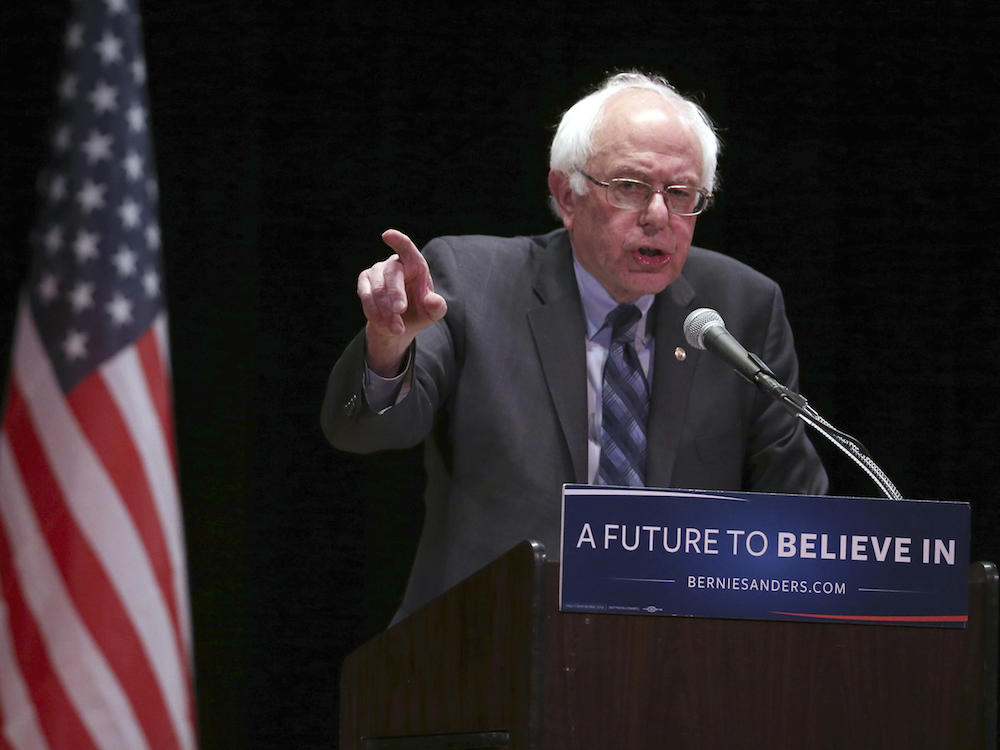By Dimitris Konstantakopoulos
Journalist and writer
An English-language Greek-American newspaper named him “Bernie the Greek”. They were referring to the “Bernie Sanders phenomenon”, from the name of the American politician who was able, against all odds, to claim his nomination as presidential candidate for the US Democratic Party.
For decades, in Greece, and among Greek Americans, we tend to “analyze”, in great detail, any politician in the States who is supposed to play some role in Washington’s policy towards Greece.
This makes even more amazing the fact that the Sanders campaign provoked so little interest in Greece. And this happened, in spite of the fact that he adopted the most radical positions in favour of Greece and defended our country in a way that even Greek politicians did not do very often!
In the history of USA, it would not be an exaggeration to say that there has never appeared another politician with a so deep “philhellenic” attitude. There were certainly, in the past, politicians who have made one or the other statement, to get Greek-American vote, statements usually of a general texture and almost never convertible into practical benefit for the country. There were also Greek-American politicians who harboured a sympathy with Greece because of their origin – but their basic interests and ideas echoed trends of the American establishment and were not willing to alter their stance on key issues for the sake of Greece.
The case of Sanders is very different. His “philhellenism” is deep and solid, “organic”, because it comes naturally out of the very ideas he is defending for decades and which are now at the very centre of his election campaign. His positions in favor of Greece, victim of the “markets” par excellence, come out of his own analysis and struggle against the expanding and uncontrolled role of the US and international financial system, not out of any personal sympathy or antipathy for our country. These views are behind the war declared against him by the Wall Street (see www.nakedcapitalism.com/2016/01/bill-black-wall-street-declares-war-against-bernie-sanders.html).
In his speeches, the candidate for the Democratic nomination defends our country and points the bulk of the responsibility for the tragic problems that Greece is now facing in the activities of the international finance, starting with the role of the Goldman Sachs bank in the “masquerading” of Greek statistics. “Our difference is that I did not get money from Goldman Sachs”, was one of his famous quotes against his rival Hillary Clinton, while he has set, in the centre of his program, the restricting of the uncontrolled actions of financial institutions (see for ex. http://www.dailymail.co.uk/news/article-3485127/Bernie-Sanders-blasts-Hillary-Clinton-Wall-Street-speech-transcripts-saying-release-speeches-terrified-Wall-Street-giving-millions.html).
“Why you should care about Greece”, was, for example, the axis of one of his speeches last July, in which he condemned the policy of wild austerity imposed on Greece and its consequences (see www.thenation.com/article/bernie-sanders-explains-why-you-should-care-about-whats-happening-to-Greece/ and http://usa.greekreporter.com/2016/02/03/video-heres-what-bernie-sanders-has-to-say-about-greece/)
When the election campaign began, no one paid attention to Sanders, they considered him an absolutely marginal, hopeless candidate. However, as it happened in Britain with Corbyn, he refuted all forecasts and managed, without big financial interests behind him, based on the attraction of his ideas and of his personal moral stand, to express a deep, increasingly powerful current emerging now in many Western societies. People are seeking desperately honest politicians and ways to maintain a minimum of living standards and a minimum level of social rights and security. Most observers, while not excluding completely his victory, consider it rather unlikely. Even if they are right, the final support he will get may be very important for the future of the US policy on fields absolutely critical for the very survival of Greece as an organized society, state and democracy.
In essence we have, mutatis mutandis, a repetition of the phenomenon of “philhellenism” of the 19th century. Then the greatest spirits of Europe, including Lord Byron, Victor Hugo and many others became great sympathizers of the Greek cause. Some of them even came to Greece, they participated to our revolts and the Revolution and they sacrificed their lives for it.
They did not do it out of special sympathy for our country. Nor because of admiration for its past grandeur. They did it mainly because they saw, in the Greek revolution, a lightning in the sky of the deepest night of European absolutism, then dominating all continent. Exactly as the shadow of a new “absolutism”, in the form of a “financial totalitarianism”, seems now to threaten all counbtries and nations, even including the stronger ones.
Then, as it happens also now, they seemed to have a sharper understanding and a deeper consciousness than we ourselves have sometimes, of the global significance of the Greek question.
Published by the Athens-Macedonian News Agency, 16.3.2016











